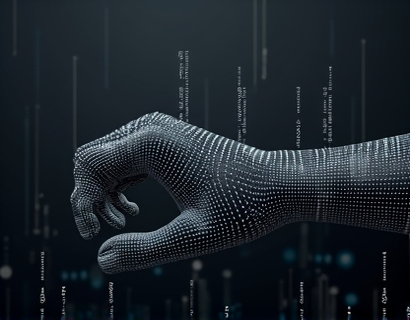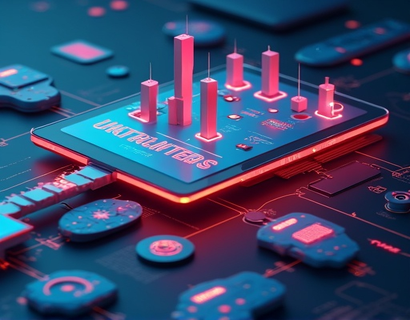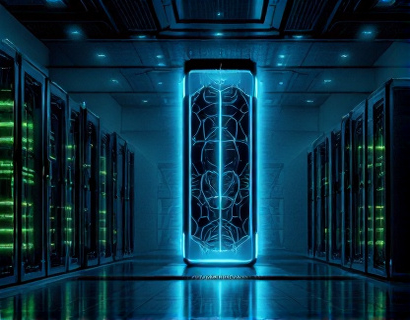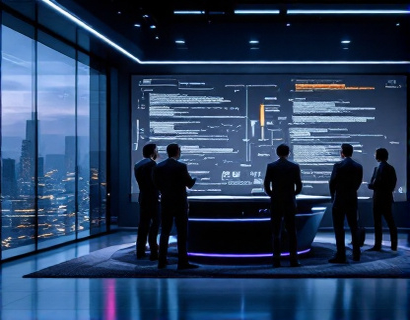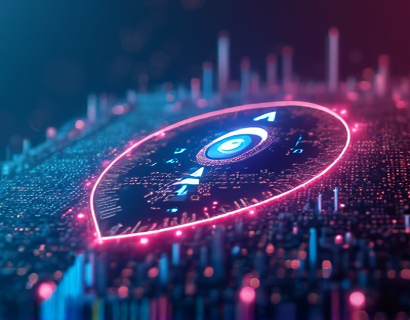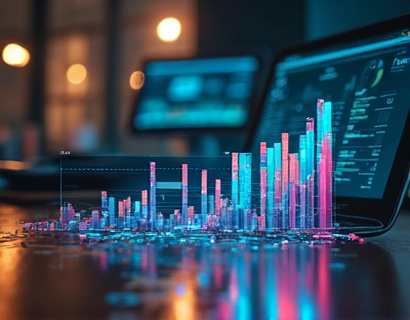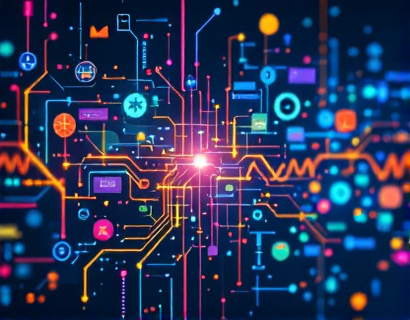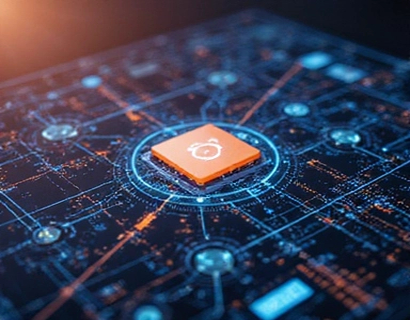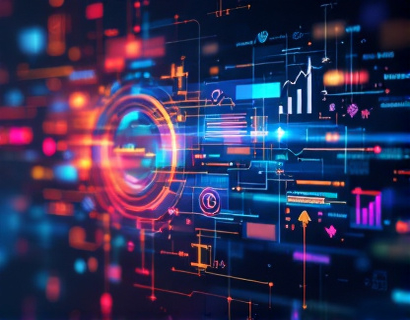Unlocking Enhanced Digital Experiences Through the Synergy of Crypto and AI
The intersection of cryptocurrency and artificial intelligence (AI) is giving rise to a new era of digital innovation, where the boundaries of traditional technology are being redefined. This synergy is not just about combining two powerful technologies but about creating a transformative ecosystem that enhances user experiences and drives growth in the digital realm. For tech professionals and early adopters, understanding the applications and potential of blockchain and AI is crucial in harnessing the full power of these advanced solutions.
The integration of AI with blockchain technology is opening up new possibilities for secure, efficient, and user-centric applications. Blockchain's inherent properties of transparency, immutability, and decentralization, when combined with AI's capabilities in data analysis, machine learning, and automation, create a powerful toolkit for developers and businesses alike. This article delves into how this combination is reshaping digital experiences and fostering innovation across various sectors.
Enhanced Security Through AI and Blockchain
One of the most significant benefits of combining AI with blockchain is the enhancement of security measures. AI algorithms can monitor blockchain networks in real-time, detecting and mitigating potential threats more efficiently than traditional methods. For instance, machine learning models can analyze patterns in transaction data to identify anomalies that may indicate fraudulent activity. This proactive approach to security ensures that transactions remain secure and trustworthy, which is paramount in the crypto space.
Moreover, AI can improve the management of private keys and wallet security. By using AI-driven authentication methods, users can benefit from multi-factor authentication that adapts to their behavior and environment, providing an additional layer of security. Smart contracts, when paired with AI, can automate complex security protocols, ensuring that only authorized parties can access sensitive information. This fusion not only protects user data but also builds confidence in blockchain-based applications.
Optimized User Experiences with AI-Powered Interfaces
The user experience (UX) is a critical factor in the adoption and success of any digital platform. AI-driven interfaces can significantly enhance UX by personalizing interactions and streamlining processes. For example, chatbots powered by natural language processing (NLP) can provide instant customer support, answering queries and guiding users through complex tasks with ease. These AI assistants can learn from user interactions, continuously improving their responses and adapting to individual preferences.
In the context of blockchain applications, AI can optimize the user interface by analyzing user behavior and preferences to offer tailored recommendations. For instance, a decentralized finance (DeFi) platform can use AI to suggest investment strategies based on a user's risk tolerance and historical transactions. This level of personalization not only enhances user satisfaction but also increases engagement and retention.
Efficient Data Management and Analytics
Data is the lifeblood of both AI and blockchain technologies. The ability to manage, process, and analyze large volumes of data efficiently is crucial for driving insights and making informed decisions. AI algorithms can process and analyze blockchain data in real-time, extracting valuable insights that can inform business strategies and operational improvements. This capability is particularly useful in industries such as finance, supply chain, and healthcare, where data-driven decision-making is essential.
Blockchain's decentralized nature ensures that data is distributed across multiple nodes, reducing the risk of data breaches and ensuring data integrity. AI can further enhance this by performing advanced analytics on decentralized data sources, identifying trends and patterns that might not be apparent through traditional methods. For example, AI can analyze transaction data on a blockchain to optimize supply chain logistics, reducing costs and improving efficiency.
Automated Smart Contracts and AI-Driven Decision Making
Smart contracts, self-executing contracts with the terms directly written into code, are a cornerstone of blockchain technology. When combined with AI, smart contracts can become even more powerful and versatile. AI can be used to dynamically adjust the parameters of smart contracts based on real-time data, making them more adaptive and responsive to changing conditions. This capability is particularly useful in automated trading, where AI can execute trades based on predefined AI-driven criteria, ensuring optimal outcomes.
Moreover, AI can assist in the creation and management of smart contracts by identifying potential vulnerabilities and suggesting improvements. This reduces the risk of errors and enhances the reliability of smart contracts. For instance, AI can analyze the code of a smart contract to detect security flaws or inefficiencies, providing developers with actionable insights to enhance the contract's performance.
Decentralized Applications and AI-Enhanced Services
Decentralized applications (dApps) are at the forefront of the blockchain revolution, offering users greater control and privacy over their data. AI can significantly enhance the functionality of dApps by providing intelligent services that adapt to user needs. For example, a decentralized social media platform can use AI to curate content based on user preferences, ensuring a more personalized and engaging experience. AI-driven recommendation systems can also help users discover new content and connect with like-minded individuals.
In the realm of gaming, AI can create more realistic and dynamic game environments, enhancing the overall user experience. Decentralized gaming platforms can leverage AI to generate procedural content, ensuring that each player's experience is unique. Additionally, AI can be used to develop intelligent NPCs (non-player characters) that respond to player actions in a more human-like manner, adding depth and complexity to the game.
Challenges and Considerations
While the potential of combining AI with blockchain is immense, there are several challenges and considerations that must be addressed. One of the primary concerns is the scalability of blockchain networks. As the volume of data and transactions increases, the performance of blockchain systems can be strained. AI can help mitigate this by optimizing network protocols and improving data processing efficiency, but it is not a silver bullet.
Another challenge is the regulatory landscape. The intersection of crypto and AI operates in a relatively uncharted territory, with varying regulations across different jurisdictions. Developers and businesses must navigate these regulations carefully to ensure compliance and avoid legal issues. Additionally, the ethical implications of AI, such as bias and transparency, must be carefully managed to maintain trust and integrity in blockchain applications.
Future Prospects and Innovations
The future of the crypto and AI synergy holds tremendous promise. As both technologies continue to evolve, we can expect to see more innovative applications that push the boundaries of what is possible. For instance, the integration of AI with the Internet of Things (IoT) and blockchain can lead to smarter, more secure, and more efficient connected devices. This could revolutionize industries such as smart cities, healthcare, and manufacturing.
Furthermore, the development of more advanced AI models, such as quantum AI, could unlock new levels of computational power, enabling more complex and sophisticated blockchain applications. The potential for AI to solve some of the most challenging problems in cryptography and data security is vast, paving the way for a more secure and resilient digital infrastructure.
In conclusion, the synergy between cryptocurrency and AI is transforming the digital landscape, offering enhanced security, optimized user experiences, and efficient data management. For tech professionals and early adopters, embracing this synergy is not just an opportunity but a necessity in the rapidly evolving tech world. By leveraging the strengths of both technologies, we can create a more connected, secure, and intelligent digital future.




